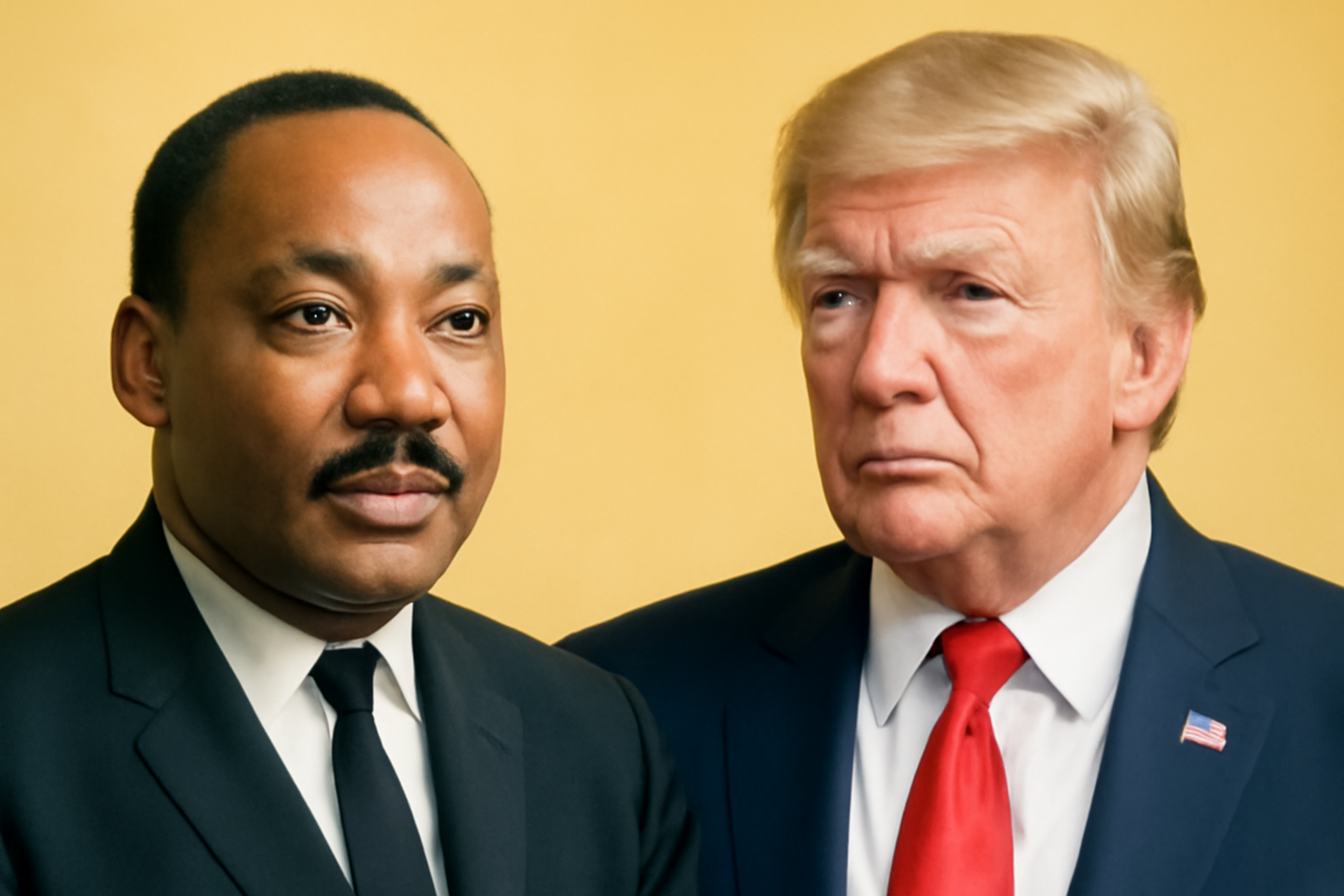
On January 20, 2025, the United States witnesses a moment of profound contrast. While the nation honors Rev. Dr. Martin Luther King Jr. on his national holiday, another significant event unfolds: the inauguration of Donald John Trump as the 47th president.
Dr. King, renowned for his dedication to peace and civil rights, famously stated, “There can be no justice without peace, and there can be no peace without justice.” His legacy of fighting for equality and justice for marginalized groups stands in stark opposition to the actions of Trump, whose policies and rhetoric have often targeted these very communities.
Remembering Martin Luther King Jr.'s Legacy
Dr. King’s commitment to justice was unwavering, as highlighted by his powerful words in 1967, “I see these two struggles as one struggle.” He recognized the interconnectedness of issues, asserting that “injustice anywhere is a threat to justice everywhere.” His advocacy extended beyond racial equality to include broader social justice, a sentiment echoed by his wife, Coretta Scott King, who urged the inclusion of LGBTQ+ people in the fight for equality.
Alongside Dr. King, another prominent figure in the fight for human rights was Jimmy Carter, the 39th President of the United States. Though raised in the segregationist South, Carter grew into a champion of civil rights, declaring, “No poor, rural, weak, or Black person should ever have to bear the additional burden of being deprived of the opportunity of an education, a job, or simple justice.”
Jimmy Carter's Human Rights Advocacy
During his presidency from 1977 to 1981, Carter prioritized human rights, famously orchestrating the Camp David Accords and promoting democratic principles worldwide. His post-presidency work with Habitat for Humanity and the Carter Center further demonstrated his dedication to improving lives globally. In 2002, he was awarded the Nobel Peace Prize, following in the footsteps of Dr. King, who received the honor in 1964.
The legacy of both Dr. King and President Carter represents a commitment to fairness and justice, serving as role models for future generations. Their work underscores the importance of addressing the systemic barriers that impede social mobility and equity.
The Stark Contrast of Leadership
In contrast, Donald Trump’s return to the presidency in 2025 is marked by a continuation of divisive rhetoric and policies. Criticized for rolling back rights and protections for marginalized communities, Trump’s actions pose challenges to the progress made by civil rights leaders. His presidency is characterized by a focus on nationalism and a departure from the inclusive vision championed by Dr. King and President Carter.
Trump’s administration has been noted for its attempts to undermine various civil liberties, from reproductive rights to voting rights. His tenure is marred by allegations and convictions, yet his influence remains potent, fueled by fear and prejudice.
Reflecting on the Past to Shape the Future
As Trump takes the oath of office, many will recall the higher moral standards set by leaders like Dr. King and President Carter. Their dedication to justice and equality serves as a guiding light in times of political turbulence. Reflecting on Dr. King’s “Letter from a Birmingham Jail,” we are reminded that “oppressed people cannot remain oppressed forever.” Their legacies inspire continued advocacy for a more just and equitable world.
In these challenging times, we draw strength from those who have fought for civil rights and continue to strive towards an inclusive and fair society for all. As we honor their memory, we commit to advancing their vision of justice and equality.
Join us in this journey by subscribing to our newsletter for insightful commentary on LGBTQ+ issues and beyond.
Related Posts
Triumphant Trans Woman Wins Legal Battle and Inspires Others to Stand Up for Their Rights
Breaking new ground: a landmark victory in transgender rights After battling in courtrooms and enduring endless challenges, Diana Portillo, a transgender woman, has secured a monumental victory in her decade-long fight against workplace discrimination. The result? Nearly $1 million awarded in a historic settlement. But this isn't just a win on paper—it represents a powerful precedent in combati [...]
Pride Month in Latin America: Protests and Demands for Equality
**Celebrating Pride and advocating LGBTQ+ rights in Latin America** Pride Month in Latin America was a lively mix where celebration met activism. Communities united, not just throwing a party but making a stand—demanding equality and pushing governments toward better protection and rights recognition. Throughout Latin America, pride events erupted in marches and cultural displays, each with a c [...]
Transgender Erasure Actions Implemented by National Park Service
```html Trump administration's impact on national park service and transgender recognition The Trump administration made notable moves in undermining transgender representation, which included directing agencies like National Park Service not include "T" and "Q" when they refered “LGBTQ” in any official communication. This move seems part a broader plan by this administration aimed at reducin [...]